Feedback on the ECHO Network opening seminar, January 2023, Paris
From January 14 to 16, 2023, the Ceméa France and Framasoft held the opening seminar of the ECHO Network project. Here is a report of this weekend of international exchanges and discoveries.
A two-year European project
Presented on the Framablog last October, ECHO Network is one of the four flagship projects of our roadmap Collectivisons Internet, Convivialisons Internet.
Ethical, Commons, Humans, Open-Source Network is a project, but also an associative network on a European scale. Led by the new education association Ceméa France, this network is composed of 7 structures from 5 European countries :
- Ceméa France
- Ceméa Federzione Italia
- Ceméa Belgique (Belgium)
- Willi Eichler Academy (Germany)
- Solidar Foundation (European network)
- Centar Za Mirovne Studije (Croatia)
- Framasoft (France)
These structures share an intent to accompany citizens (via popular education, news, activism, etc.), and to exchange on the digital uses specific to their country, their culture, their language.
Study trips are therefore planned in 2023 in each of the countries to facilitate these exchanges and the understanding of the context of each one, so that in 2024 we can produce commons that can be used by other associations in Europe.
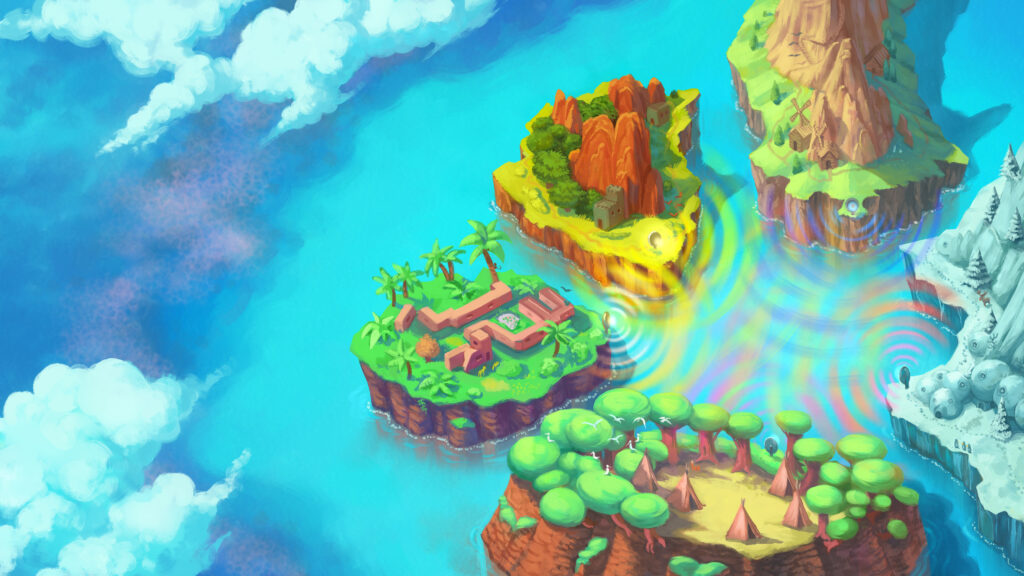
ECHO Network – Illustration by David Revoy – Licence : CC-By 4.0
The opening seminar in Paris
The first meeting with all the actors took place from Saturday 13 to Monday 16 January in Saint Ouen, north of Paris, France.
This opening seminar was co-organized by Ceméa France and Framasoft. While we didn’t hesitate to get involved and contribute as much as we could, we have to admit that members of the Ceméa have a precious experience in setting up these events, and that they did a great job overall on organizing this seminar.
In addition to the thirty or so participants representing the partners of the ECHO Network project, we were able to invite more than twenty people from networks interested in new education, digital mediation, the commons and free software to contribute to these first discussions on ethical digital support for citizens.
Thus, this opening seminar was designed to find out how to talk about the same thing when we don’t speak the same languages, even though our contexts are different and our digital cultures varied.
Imagine a large room, about twenty people are sitting on chairs in tight rows. In front of them, a person seems to give them instructions. That’s what it looked like.
Understanding each other through « new education »
These three days were conceived beforehand using the methods of « new education » dear to the Ceméa.
The 55 people were divided into 3 reference groups, in order to share knowledge together. The concept was simple : rather than having poor interactions with 55 people, spend more quality time with a smaller group of 15 of them.
These groups were led by a team of three people (2 members of Ceméa, 1 member of Framasoft). Some periods were also reserved to be spent in micro groups (of 2-4 people) and to realize « mini projects ». Of course, all the participants gathered for the meals and conviviality times in the canteen.
Let’s take a moment to greet and thank the team managing the place, Mains d’œuvres, in Saint-Ouen, for their wonderful welcome and their delicious food. This space dedicated to culture and integrated into the life of the neighborhood was ideal to discover the flavor of Paris that’s lived by the locals. https://www.mainsdoeuvres.org/
The three days were divided into six half-days : the first one to meet each other, then 4 half-days dedicated to exchange on the notion of Ethics, Commons, Humanization and Openness in the digital world (yes, these are the words of the ECHO acronym ;)).
The last half-day of Monday afternoon allowed each group to present to the others a report of the exchanges, to put all this together and to say goodbye.
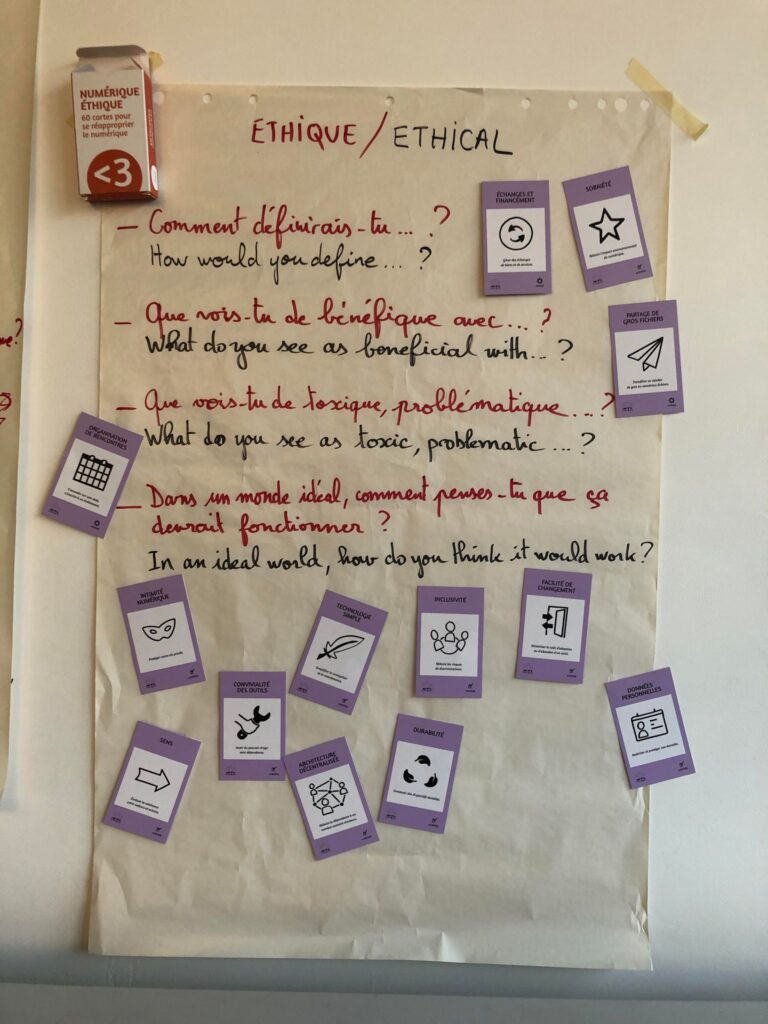
Conviviality as a political tool
The objective was to meet and to understand what brings us together in our political actions (which aim at organizing the society in a different way), and for that, the Ceméa and Framasoft relied on conviviality and exchange.
The participants had different sensitivities about digital uses. Most of them knew Mastodon but not all of them. Most of them had an idea of what free software is but not all of them. The activities allowed them to share their knowledge of the different themes.
The workshops took several very imaginative formats, such as :
- inventing one’s own social network (with its codes, terms of use, and functioning), and imagining how one would moderate the posts of other communities
- imagining what would be acceptable or unthinkable to put or remove in a « lifephone », a low-tech phone that everyone would keep all their life
- Use the Métacartes Numérique Éthique to explore one to three topics in a small group and then present these topics to the rest of the group and facilitate the discussion
- a moving debate where you position yourself in the room (near the « agree » wall or on the other side near the « disagree » wall) around assertions concerning ethics and digital technology
- and many other animations, which are documented in the article written by the Ceméa
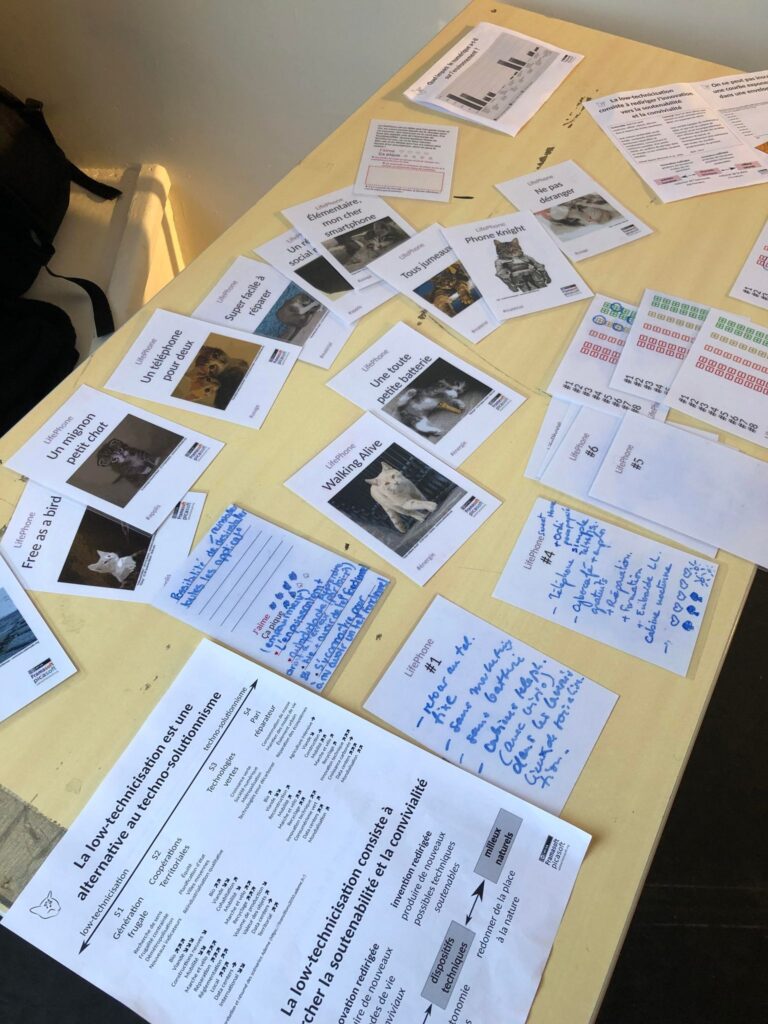
The « Life Phone » workshop.
During the time devoted to these mini-projects, we were able to observe some beautiful initiatives :
- Imagining an adaptation of the « Métacartes Numérique Éthique » to make them more accessible to a young audience
- A writing workshop on what a desirable digital world could look like. You can read the results on Chosto’s blog (FR), from the Picasoft association
- Digging into the question of digital support for associations with a turnkey kit
- Laying down the principles that would help to create an ethical and collaborative video game
- Chatting about how to introduce the societal issues of digital technology in higher technical education.
In short, collective intelligence has shown again, during these three days, its wonderful power.
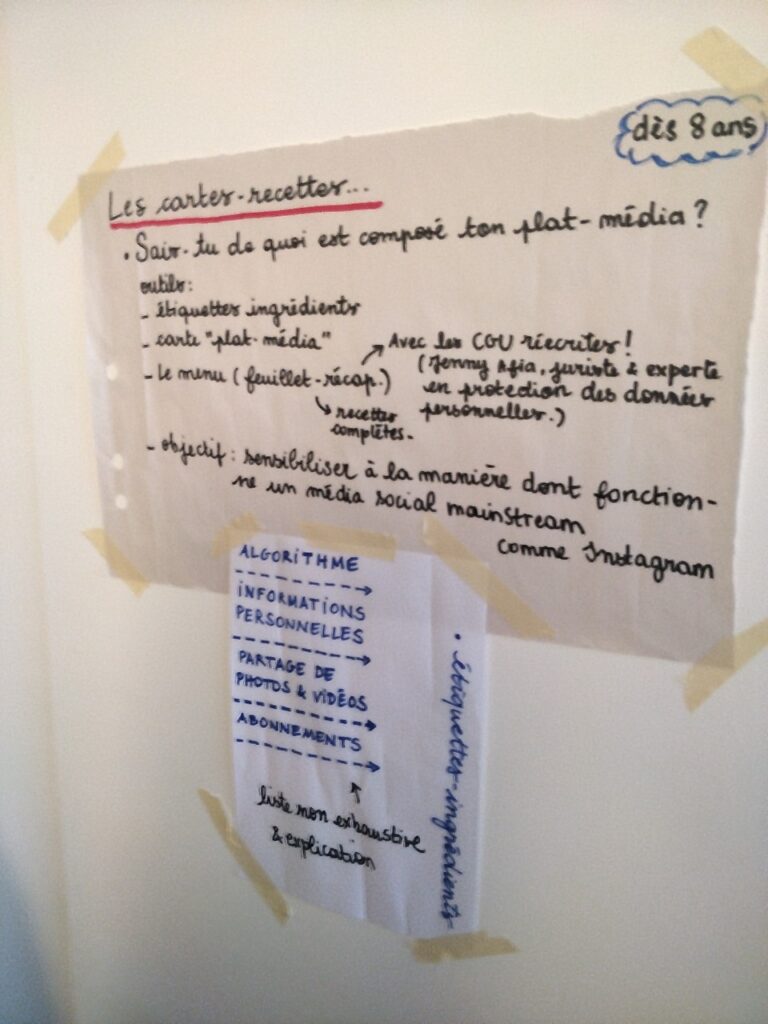
Recipe cards, a tool idea that makes you drool !
Study visits to follow
If we already know that these will not necessarily resemble this seminar (where we have chosen new education methods as a tool for meeting and exchange), the next study visits have already been scheduled. In fact, as we finish writing these lines, all the partners are in Berlin for another meeting.
The main themes for those visits are, in our opinion, quite attractive :
- Germany (March 2023) – Centralized social networks among young people, a tool for emancipation or alienation ?
- Belgium (June 2023) – New Education practices to raise awareness on ethical tools
- Italy (September 2023) – Between face-to-face and distance learning, which use of digital technology ?
- Croatia (December 2023) – Inclusivity and accessibility in the Digital world
Of course, we will continue to report here about our experiences within these meetings and this project. All the articles can be found in the ECHO Network category on the Framablog… To be continued, then !
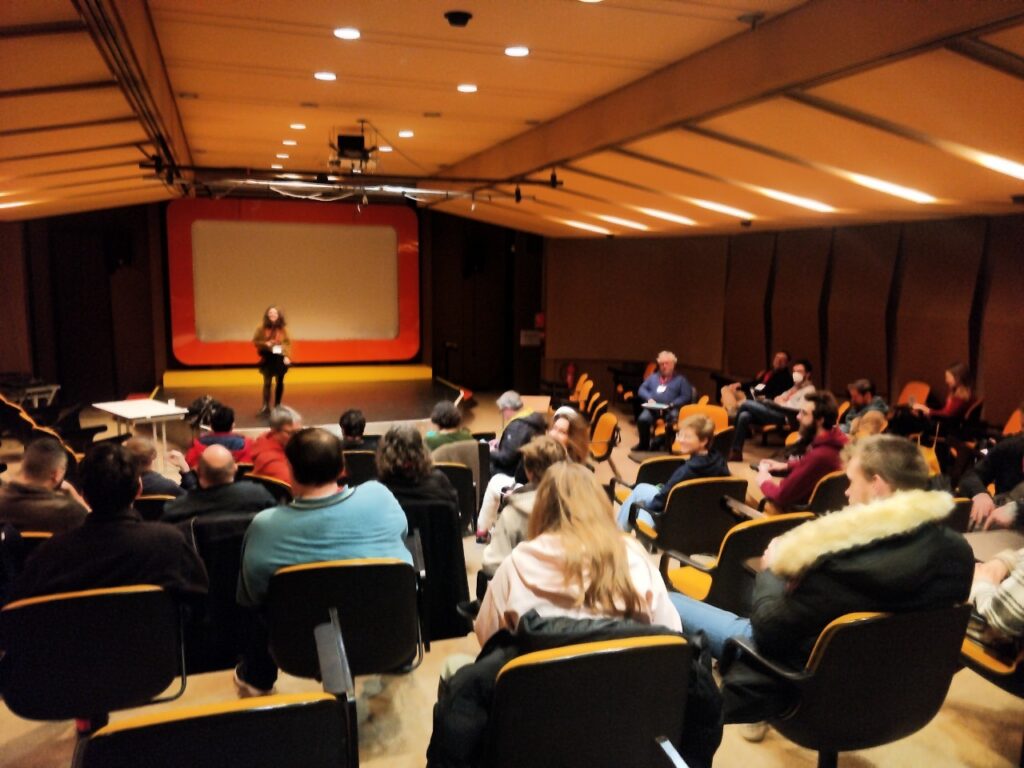
The picture is blurry, but you can see the main thing : the « Star Trek » room we used during the plenary sessions.